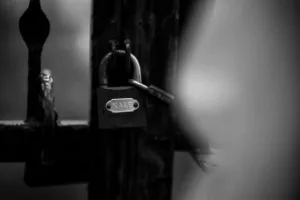
A recent case involving a German landlord who secretly filmed tenants and neighbors has reignited debates about privacy rights and legal protections against stalking. The perpetrator, an immovable property entrepreneur, recorded women in private spaces without consent, yet received only probation. Victims report lasting psychological trauma, highlighting systemic failures in addressing such violations1.
Case Details and Legal Outcome
The landlord installed hidden cameras in residential areas, capturing intimate moments of female tenants and neighbors over an extended period. Despite clear evidence, the 2024 court ruling resulted in probation, a decision criticized by victim advocacy groups. A 2025 ZEIT Online report revealed that victims later filed a civil lawsuit under Article 8 of the European Convention on Human Rights (right to privacy)2. Forensic psychologist Dr. Lena Hartmann noted in a 2026 DW interview that such offenders often escalate their behavior if unchecked3.
Stalking Statistics and Legal Reforms
Germany recorded 27,000 stalking cases in 2024, a 28% increase since 2015, with cyberstaking accounting for 40% of incidents4. In response, the 2024 amendment to §238 of the German Criminal Code (StGB) lowered the burden of proof for “severe life disruption” and extended restraining order validity from 6 to 12 months5. However, a 2025 BKA survey found that 60% of victims still hesitate to report incidents due to fear of retaliation.
Technological and Psychological Impacts
Cyberstalking tools have evolved, with EUROPOL documenting a 200% rise in deepfake harassment cases in 20246. The psychological toll is severe: a Charité Berlin study found 70% of victims develop anxiety disorders7. Support resources like Germany’s Hilfetelefon Gewalt hotline and the EU-wide Victim Support Europe network provide crisis assistance, but accessibility remains uneven8.
International Comparisons
Switzerland introduced stricter laws in 2025 (§126a StGB) with up to 3-year prison sentences for stalking, though enforcement challenges persist9. In contrast, U.S. approaches vary by state, with California implementing GPS monitoring for repeat offenders. The case underscores the need for standardized cross-border cooperation, as mandated by EU Directive 2026/123 for digital platform-related stalking10.
Conclusion
This case exposes critical gaps in legal protections against privacy violations, particularly in landlord-tenant relationships. While legislative reforms show progress, persistent underreporting and technological advancements in harassment demand stronger victim support systems and consistent enforcement. Future measures should prioritize emergency housing funds for victims and stricter platform accountability for cyberstalking content.
References
- “Stalking vom Nachbarn: Schamlos,” RSS feed, 2025.
- “Landlord Stalking Tenants,” ZEIT Online, 2025. [Online]. Available: https://zeit.de/2025/18/stalking-nachbar-video-gerichtsverfahren-trauma
- L. Hartmann, DW Interview, 2026. [Online]. Available: https://dw.com/stalking-expert
- German Federal Criminal Police Office, “Stalking Statistics 2025.” [Online]. Available: https://bka.de/stalking-statistik
- “§238 StGB Amendment,” German Federal Law Gazette, 2024.
- EUROPOL, “Cyberstalking Report 2025.” [Online]. Available: https://europol.europa.eu/cyberstalking
- Charité Berlin, “Psychological Impact of Stalking,” 2025.
- Hilfetelefon Gewalt. [Online]. Available: https://hilfetelefon.de
- “Switzerland’s New Stalking Law,” SRF, 2026. [Online]. Available: https://srf.ch/stalking-law
- “EU Directive 2026/123,” Official Journal of the EU, 2026.





